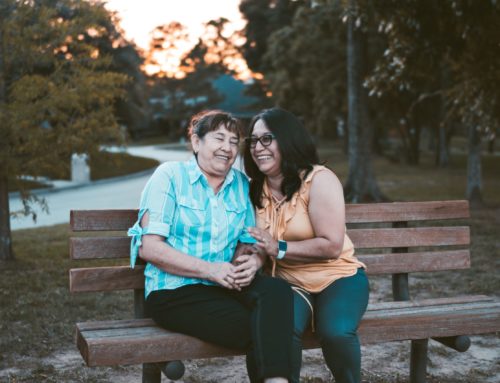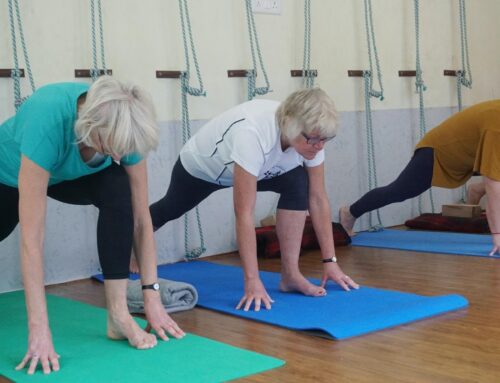New research reveals that incorporating structured exercise into post-treatment care can dramatically decrease the risk of death, recurrence, and new cancers.
While chemotherapy, radiation, and surgery remain central to cancer treatment, they often result in substantial side effects, leaving survivors to navigate a complex recovery that extends well beyond the end of treatment. However, recent research published in The New England Journal of Medicine confirms what we see in practice: structured exercise, when guided by a qualified health professional, has been shown to improve survival outcomes and reduce the risk of cancer recurrence.
At Valion Health, this approach is at the heart of how we support patients during and after treatment, helping them rebuild strength, confidence, and quality of life.
What the latest research says about exercise and cancer
Patients from around the world followed a structured exercise regime after completing their cancer treatment and saw remarkable results. The study found that:
- Patients who engaged in regular, structured exercise with the support of a personal trainer or health coach had a 37% lower risk of death compared to those who only received general health advice.
- The risk of cancer recurrence or the development of new cancers was reduced by 28% for those who committed to the exercise program.
Why exercise works: the science behind the benefits
While effective, cancer treatments can still be incredibly challenging, both physically and emotionally. They often lead to fatigue, muscle weakness, pain, and even depression. Regular exercise has been shown to help reduce these side effects by:
- Improving mental health – Exercise helps ease depression, anxiety, and emotional stress, giving cancer survivors a boost in emotional strength and resilience.
- Reducing cancer-related fatigue – Cancer-related fatigue is one of the most persistent and debilitating side effects experienced by survivors. Structured exercise is one of the most effective interventions to combat it.
- Increasing Quality of Life – Studies consistently show that exercise leads to better sleep, improved mood, and a higher sense of overall well-being.
The Valion Health difference: comprehensive support beyond exercise
Our patient-centred approach focuses on personalised rehabilitation delivered through a multidisciplinary team of experienced oncology nursing and allied health professionals. While exercise is one part of our recovery plans, Valion Health goes beyond fitness routines. We offer a complete suite of services to help with:
- Navigating nutrition and diet – Our experienced, cancer focused dietitians work to overcome nutritional challenges such as decreased appetite, nausea and changes in taste.
- Improving emotional wellness – Expert oncology psychologists offer support to provide practical tools and strategies to participants and their carers.
- Managing symptoms and side effects – Throughout the program, an oncology nurse helps monitor side effects, connects to local services, and provides personalised education.
- Increasing exercise – Following Clinical Oncology Society of Australia guidelines, our exercise professionals create personalised programs to safely boost strength, endurance, and energy during and after treatment.
Rachel’s journey is a powerful example of what can happen when exercise is a core part of a holistic cancer recovery plan. After facing ovarian cancer, she was left battling overwhelming fatigue, which she rated 8 out of 10 (with 10 being the most severe). Feeling exhausted, anxious, and uncertain about what the future might hold, Rachel joined our Cancer Support Program.
With personalised support from a multidisciplinary team, including guidance from an Exercise Physiologist, Rachel gradually rebuilt her strength, confidence, and energy. By the end of the program, she experienced remarkable progress, including:
- 90% reduction in fatigue
- 120-minute increase in weekly physical activity
- 20% boost in self-efficacy
- 90% mental and physical quality of life scores
The evidence is clear: exercise is not just a supplementary treatment. It’s a cornerstone of recovery through cancer diagnosis, treatment, and survivorship. By integrating these components into a single unified approach, we’re able to offer comprehensive care that addresses every aspect of a cancer patient’s treatment and recovery journey.
Disclaimer: Before beginning any new exercise or rehabilitation program, individuals should consult their treating oncologist, general practitioner, or a qualified health professional. Recommendations in this article are general in nature and may not be suitable for everyone.
Virtual Care with Valion Health
Cancer is the most common disease facing Australians today. That’s why we developed our Cancer Support Program – to help you maintain your physical and mental wellness and manage side effects.
By joining the program you’ll have the support you need to get back to the activities you enjoy. We offer this program to people with any cancer type at any stage during and after treatment, and work in partnership with your medical team.
Funding for this program is offered through Valion Health partnerships with Australian Private Health Insurers and other funders.



